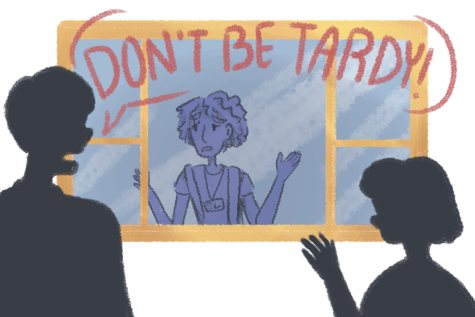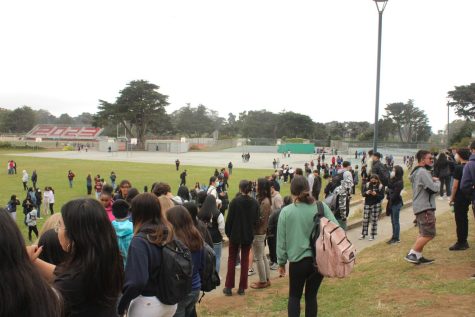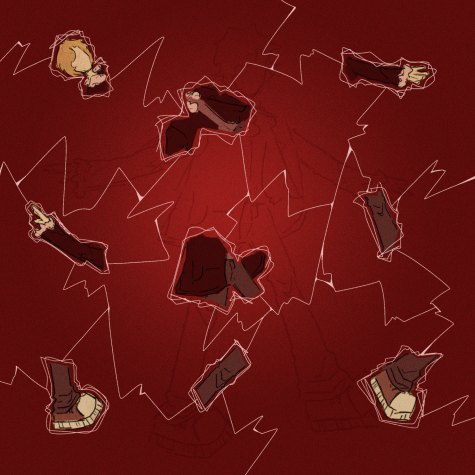Breaking from the liberal hold
Some Lowellites are afraid to share political views outside of San Francisco’s liberal mainstream. We shed some light on a few such students.
San Francisco is ranked as the most liberal American city in 2022, according to the World Population Review. Lowell, being the largest high school in San Francisco, often reflects the political perspectives of the greater city. As students share and discuss their political beliefs, those with opposing or differing viewpoints are often alienated and ignored. The diversity of political beliefs, ranging from gun rights to climate legislation, often goes unnoticed as the majority is placed under the spotlight and other opinions hide beneath shadows. In this article, we profile students holding a variety of political views and examine their experiences with Lowell’s political climate.
A Conservative Voice
For Oliver, a junior using a pseudonym, even revealing his name when discussing his more conservative political views is something he’s hesitant about. According to him, his greatest fear when sharing his opinions is being misunderstood. “The fact that I’m anonymous says a lot,” he said. “I don’t feel that comfortable with sharing my views, because there will be people who listen, but there will also be people who don’t actually listen to what I say and just label me a bigot.”
Oliver’s venture into politics began during the lockdown period of the COVID-19 pandemic. “Over quarantine, I had a lot of time to do my own research and become more politically aware,” he said. Unlike other students, living in San Francisco living in a city as liberal as San Francisco has not influenced him to become liberal. On the contrary, he’s had the opportunity to form alternative, more uncommon opinions. According to him, his belief in self-sufficiency and hard work as a means of improving your own life contradicts many San Franciscans’ heavy support of social programs, which is why he supports measures such as lower taxation. “I think that there’s a general culture of entitlement in more liberal cities like San Francisco,” he said. “People expect opportunities or handouts, like social security programs, without making any effort to achieve things by themselves.”
For Oliver, Lowell has never been an environment in which he feels safe expressing his views, largely due to the unanimity of views. He recalls that when students discussed current events in class, most students agreed with the speakers, while no one offered differing opinions. “Whenever students talk about issues like income disparity or vaccine mandates, you can really tell that a lot of people at Lowell share a common belief,” he said. “I disagree with vaccine mandates, and I don’t think governments should have a say in our autonomy. They shouldn’t be able to tell you what to put in your body or not.” According to Oliver, he also opposes popular measures such as student loan forgiveness. Similarly, he doesn’t feel comfortable voicing this opinion out loud. “I wouldn’t share these views publicly, because other people disagree,” he said.

In addition to the underrepresentation of conservatism on campus, Oliver believes that the hostility towards conservative beliefs contributes to his discomfort with sharing his views. “On social media, I’ve seen students get ‘called out’ for sharing different opinions,” he said. “There’s this culture of shutting down opposing opinions.” According to Oliver, this gave him the impression that his opinions weren’t welcome, even if he was open to discussing them.
Oliver believes that the current portrayal of conservatism in the media, as well as the actions of the Republican party, have contributed to the ostracization of more conservative voices at Lowell. “I don’t agree with the current politics of the Republican Party, and I think they give more right-leaning people a bad rep,” he said. “I know there are politicians like Trump and Marjorie Taylor Greene that make Republicans and conservatives look uneducated and bigoted.”
Oliver also believes that he shares common ground on certain issues with most students at Lowell, even if they don’t know it. A prime example: abortion rights, which he claims an overwhelming majority of Lowell students support. “I support people’s right to abortion because banning abortions is an abuse of government power, which should be minimally interfering in peoples daily lives,” he said. “You probably wouldn’t think that, because you have this perception of conservatives.” According to Oliver, this is an example of how he believes that people’s misconceptions of opposing viewpoints interfere with agreement and collaboration.
For now, Oliver hopes that students will be more open to listening to different, sometimes opposing, perspectives. According to him, listening to others’ beliefs helps expand your perspective and adjust or modify your own opinions, which is something he’s personally experienced on Lowell’s campus. He believes that stifling opposing voices only causes harm. “If you’re only listening to other Democrats and consuming Democratic media, you’re going to miss out on different opinions that might widen your perspective or change your beliefs,” he said. “It’s like an echo chamber.” Despite the current polarized state of politics, Oliver maintains his faith in more open discussion. “I think if people really sat down and talked about their beliefs, they would find out there’s a lot of common ground,” he said.
Liberal, but…
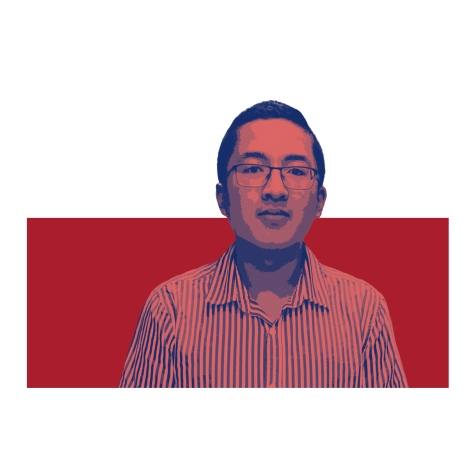
Although senior Bryce Quintos’s views fairly align with the SF population, he still feels that a differing opinion can leave one alienated and hopes for a more accepting political climate at Lowell.
Quintos became very engaged in politics despite living in an apolitical household. “My parents are what you call the opposite of being political. They don’t really vote in elections,” Quintos said. “Sometimes I bring up certain political issues, like, ‘Did you hear about the Inflation Reduction Act that was passed?’ and they’re like, ‘What the heck is that?’” Like Oliver, Quintos’s interest in politics began during the pandemic. “There were a lot of economic issues and social issues that came up during the start of the pandemic,” he said. “Such as COVID unemployment, economic instability, as well as the George Floyd and Black Lives Matter movement.”
According to Quintos, his passion for politics is fueled by his other interests and identity. For example, through his interest in fighting climate change, he learned about the role policies play in how people and corporations interact with the environment. “Seeing how we have a Democratic president who promised to fight climate change and take up various issues brought up hope in me to really advocate to pass certain legislation,” he said. Quintos also became interested in advocating for LGBTQ rights because he identifies with that community. He was worried when Roe v. Wade was overturned, as it could cause a domino effect with other preceding cases. “[The Supreme Court] could look over previous cases such as the case legalizing gay marriage or the one legalizing interracial marriage,” he said. “Rights recognized by the government aren’t something to take for granted, because of how unruly and divisive the political system is. Anything could happen.”
While Quintos’ stance on issues like climate change reform and LGBTQ rights led him to identify as a Democrat, he doesn’t agree with all the ideas and decisions made by Democratic politicians. “On certain issues, I’m a little muddy or convoluted,” he said. “I’m a little more towards the conservative side.” According to Quintos, he often hesitates to speak out when he has differing opinions from the majority of other students. “I would sometimes disagree internally but wouldn’t contradict them because of fear of being ostracized or left out,” Quintos said. From his own experience, he feels that Lowell’s environment can isolate students who hold conservative or right-leaning perspectives. “I do hear about people who mention that they’re conservative or they’re pro life and some people will say, ‘You’re wrong’ or, ‘That’s not the right viewpoint,’” Quintos said. “And I personally just feel bad for those people that aren’t able to really say what they want to say because of the fear of being kind of looked down upon for their political beliefs.”
Despite the political divide that Quintos feels in the country, he believes there can still be civil conversations between people with opposing political beliefs. He personally tries to better understand varying political perspectives and does so by consuming news from different outlets. “I think just through seeing some conservative news outlets and their point of view, I could understand some of their reasoning behind why they are for a certain reform or measure,” he said. Quintos hopes that more students will develop this approach and make Lowell’s environment more welcoming towards differing beliefs. “Civil discussions about [all perspectives], liberal versus conservative or moderate viewpoints, can happen without the environment being hostile,” he said.
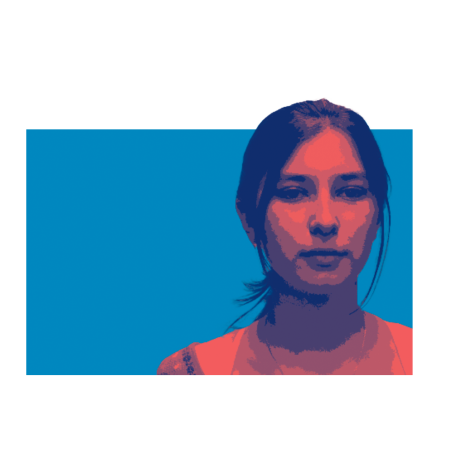
Radical Perspective
Senior Amelie L’Etoile-Goga believes that San Francisco’s, and subsequently Lowell’s, politics aren’t liberal enough along the scale. “I think a lot of our classes portray a very San Franciscan view of politics,” they said. According to them, part of this bias stems from San Francisco’s climate and environment itself. “San Francisco is a very tech-y city that’s very focused on consumption, and I think that carries through,” she said. “Generally in Lowell, people hold the view of certain corporation rights.” This includes things such as corporations’ rights to a free market and monopoly power, which are typically viewed as more conservative ideas. Although she disagrees with those ideals, she’s reluctant to speak up about it. “I think those [corporation] rights should be slimmed to none at all,” they said. “I think a lot of people have objections to that because of the idea of a free market.”
In the classroom, L’Etoile-Goga feels uncomfortable sharing her own beliefs for a reason similar to fellow students such as Oliver: Lowell lacks an open, friendly environment to discuss differing opinions. While L’Etoile-Goga agrees with others that Lowell’s population is largely liberal, she has her own differing opinion on the specificities of Lowellites’ political views. Although liberals and leftists are typically viewed as being on the same side of the political spectrum, they do not equate to meaning the same thing. She believes that, contrary to others’ beliefs, Lowell students’ views are on the more conservative side of liberalism. “[We’re] not liberal in a progressive sense,” she said. “We’re very entrenched in capitalistic ideals.” This difference has led her to lean away from participating in discussions regarding politics. “In one of my current classes, there was a question like “What are your political views?” and I filled it out saying “I’m a leftist,” she said. “When it came to sharing in class, I didn’t feel totally comfortable sharing all of that with people.” According to L’Etoile-Goga, sharing differing opinions can be seen as “inflammatory”. “That’s something I try to avoid,” she said. “Generally, [Lowell’s] environment is not super open.”
Establishing a Civil Forum
Noticing the ostracization of students with opposing political views, Junior Win Neubarth decided to create a safe space at Lowell for balanced discussion. In the 2020-2021 school year, he founded Lowell’s Political Science Club, where students meet to research, talk, and learn about all things involving politics. “I think generally, the Poli Sci Club is a place to kind of express views they might be scared to express in front of other people,” Neubarth said.
Neubarth’s political interest stemmed from a middle school field trip to Washington D.C. During the course of five days, he and his friend began discussing politicians and political issues. “We kind of started talking about politics and we talked about it the whole trip,” Neubarth said. “We talked a bunch about presidents and past presidents and candidates for the 2020 election.”
Although Neubarth’s political views largely fall into the liberal category, his views on some issues such as gun control are more uncommon. Friends and family influenced Neubarth to build his own position on political issues like gun control. “Generally, I’m pretty liberal. In terms of gun control, I’m very libertarian,” he said. “Mostly because I think that if people want to have access to a gun and they feel threatened to some capacity, they should be able to have any type that they want.” While Neubarth believes that ghost guns should be more heavily restricted, he believes AR guns should not. “I think that if you were to ban certain guns from others, people would just go underground,” he said. “It’d be harder to track who has what guns. I think historically, the right way to deal with guns is just increasing background checks.”
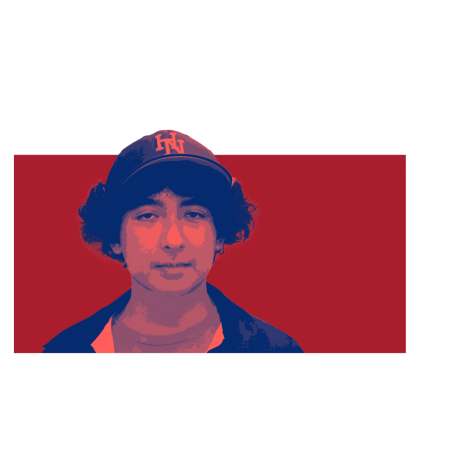
Neubarth has seen friends get insulted for expressing their views on gun ownership, which leaves him hesitant to express his own views. “I’m sometimes afraid to say exactly what I have on my mind in terms of guns, because I’m afraid that I’ll be shunned or people might look down on me or people will just straight up insult me, saying, ‘How could you say that?’” Neubarth said.
When Neubarth came to Lowell, he was looking for an environment where he could openly discuss politics with other students. He didn’t find it. “I didn’t really think there was a great way to express my political views or even talk about my political views in a club or extracurricular,” he said. “So I thought, ‘Why not create a club where you can express your views and just talk about politics?’”
Despite the strong feelings that political discussion can evoke, Neubarth believes such dialogue should occur in classrooms, as long as one’s beliefs don’t harm others. According to Neubarth, one of his teachers last year facilitated a class discussion particularly well. “[My teacher] didn’t like the lottery policy, but he thought that if you did like the lottery policy, that’s okay and there’s nothing wrong with you,” Neubarth said. “He clearly communicated that to the class, and I think that’s the right way to do it if you want to talk about politics in a classroom.” Neubarth wishes that his experience in that class could be expanded to the greater school environment. “I just hope that Lowell becomes a safer environment to express whatever view you want,” Neubarth said. “I hope that people become more accepting of less traditional views, such as libertarian or libertarian Republican views.”
Despite a wide variety of political opinions and views, popular liberal views are often the only views openly expressed at Lowell. This rigid political climate limits students from sharing their true beliefs around controversial policies. The students profiled in this article may be at odds with one another politically, but they agree that the Lowell community should work toward creating an environment that will not just tolerate, but welcome, opposing opinions.
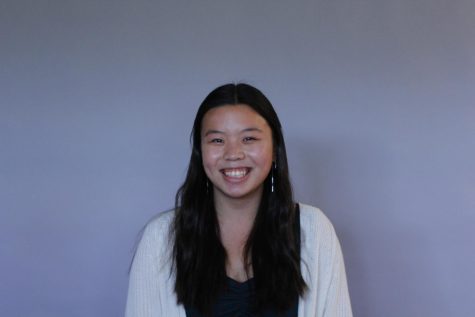
Kelcie is a senior at Lowell who can be found in the journ room working, drinking coffee, and listening to music. Her older brother once mentioned that there are only three guarantees in life: death, taxes, and Kelcie not waking up to her alarms. She also happens to have a paradoxical relationship with chicken… go figure.
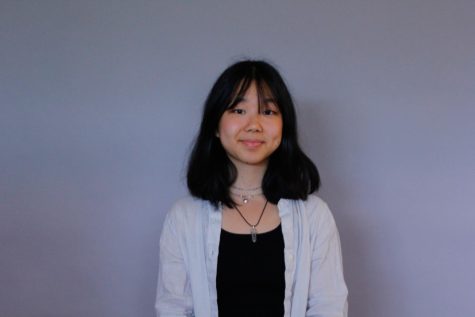
Chloe is a senior, but still doesn’t really feel like one. One thing she’s proud of are her spotify playlists, which include every genre imaginable (yes, even country). Outside of the journ room, she loves taking long drives, writing, and thrifting.
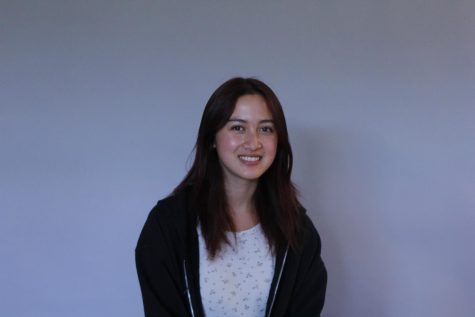
Elise is a senior. This is her third year as an illustrator for the publication. Some of her interests include petting cats, going to museums, and spending unforgiving amounts of money on the evil coffee monopoly that some may know as Peet's.
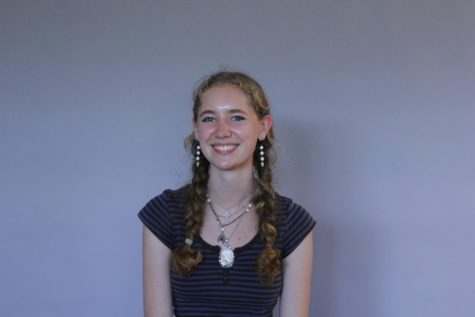
Marlena is a senior at Lowell. When she isn't at school she's probably at the lab, watching a movie, or sitting on the sidewalk listening to music (usually Björk).



